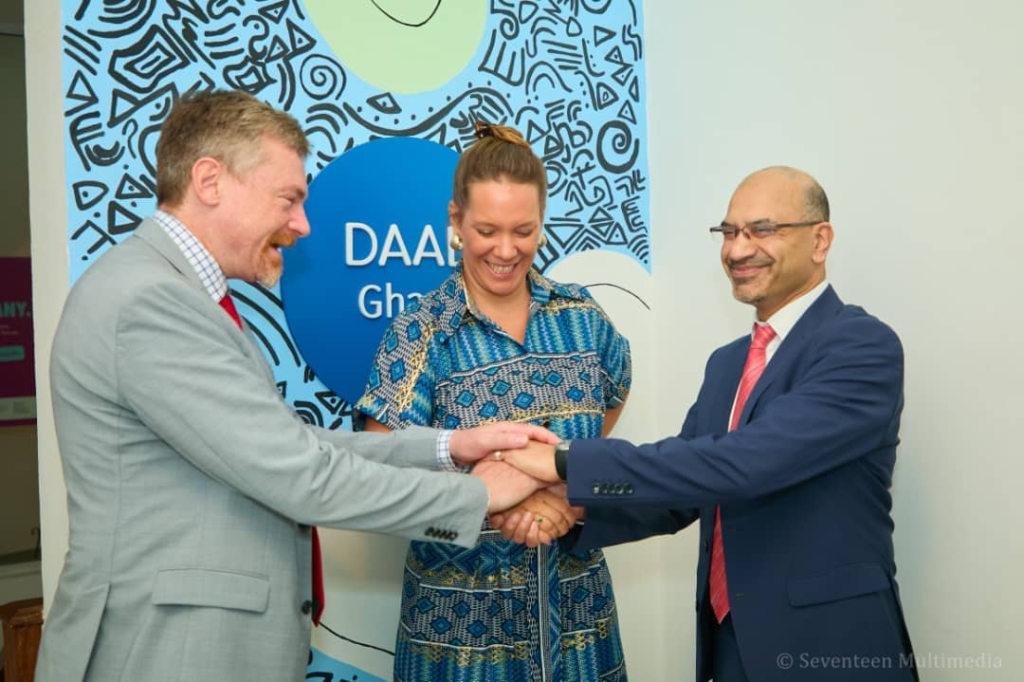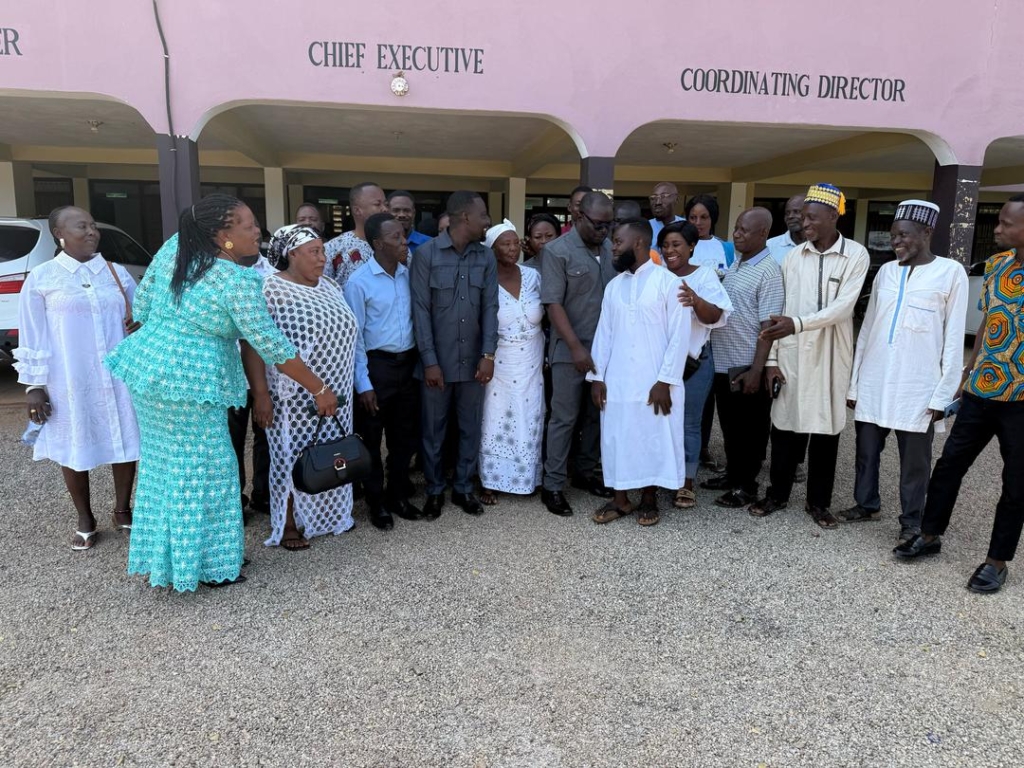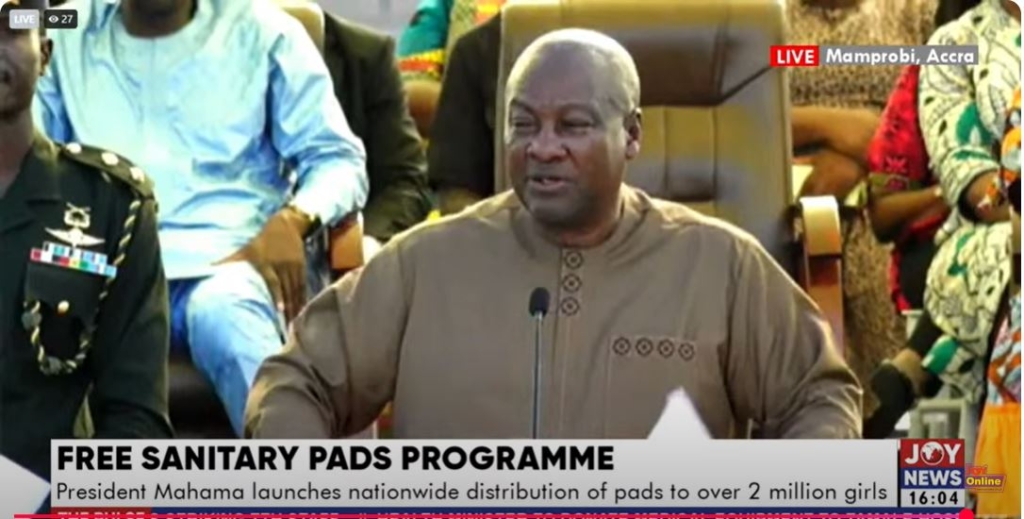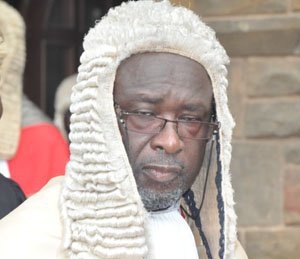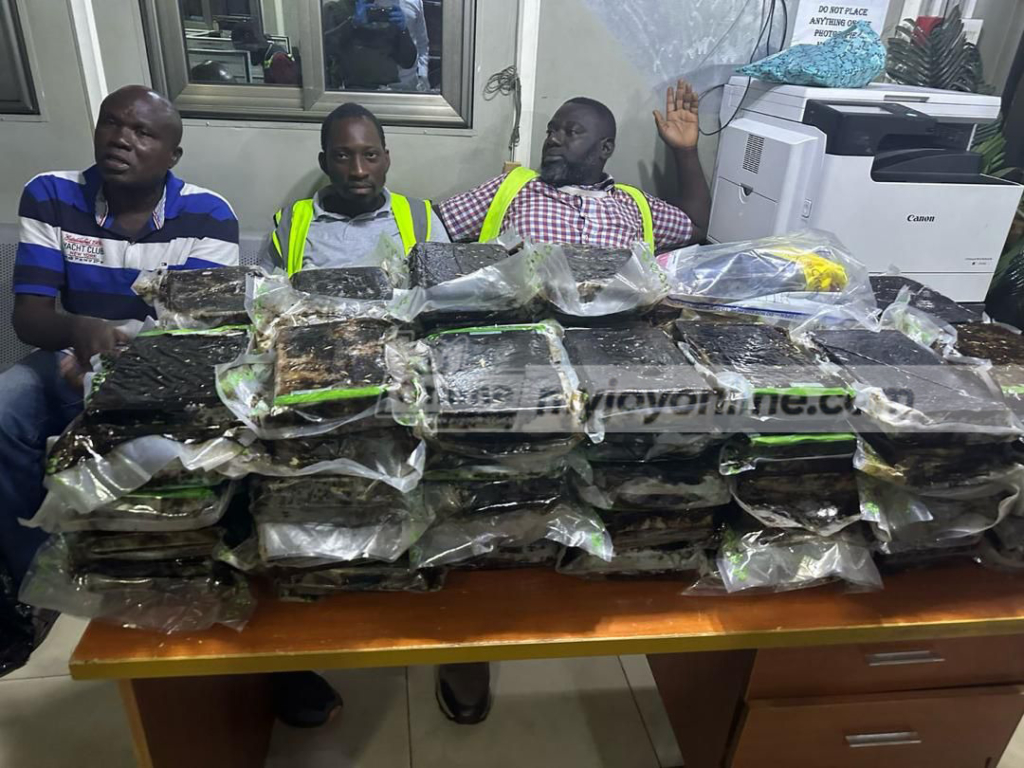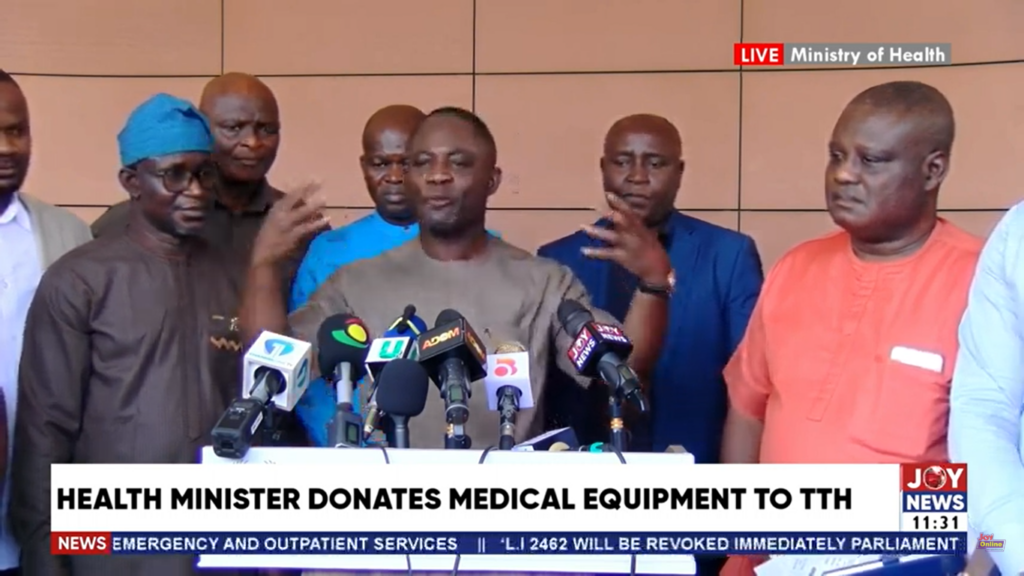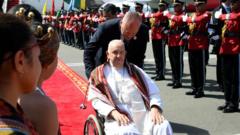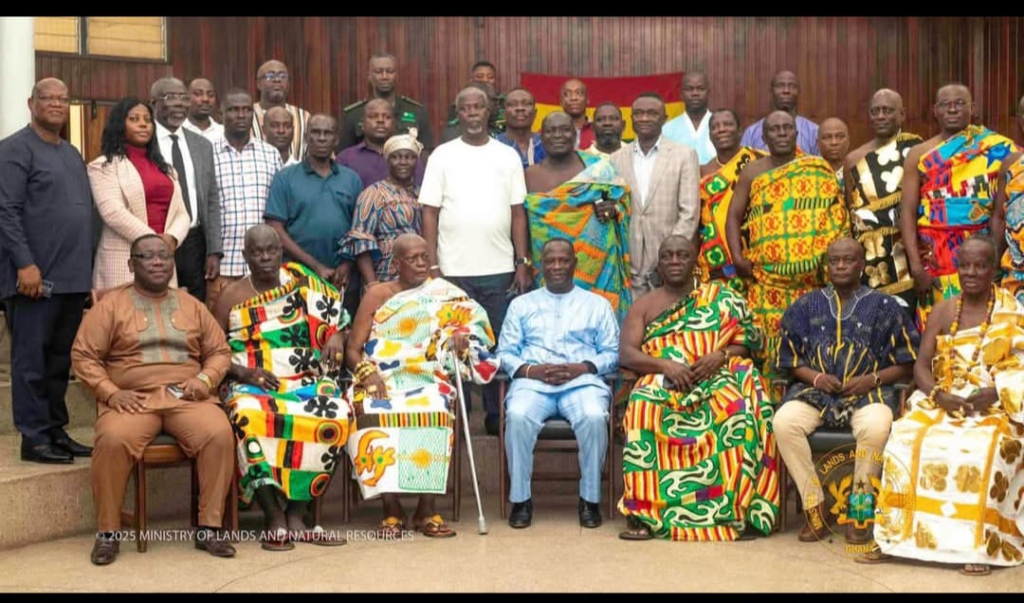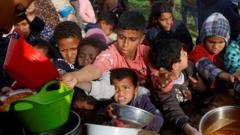The German Academic Exchange Service (DAAD) has officially opened its new Regional Office in Accra, marking a major step in strengthening higher education cooperation between Germany and West Africa.
The event, held on Thursday, 24 April, under the theme “Expanding Horizons in Germany–West African Higher Education Cooperation,” brought together dignitaries, academics, and international partners at Nyaniba Estates in Accra.
The new office, which now takes over responsibilities for Ghana, Nigeria and Cameroon, reflects DAAD’s growing commitment to the region after 25 years of presence in Ghana.
In her opening remarks, Lena Leumer, who previously led the DAAD Information Centre in Ghana and has returned as the Regional Office Director, described the new office as a “symbol of DAAD’s deepened commitment to Ghana and the region.”
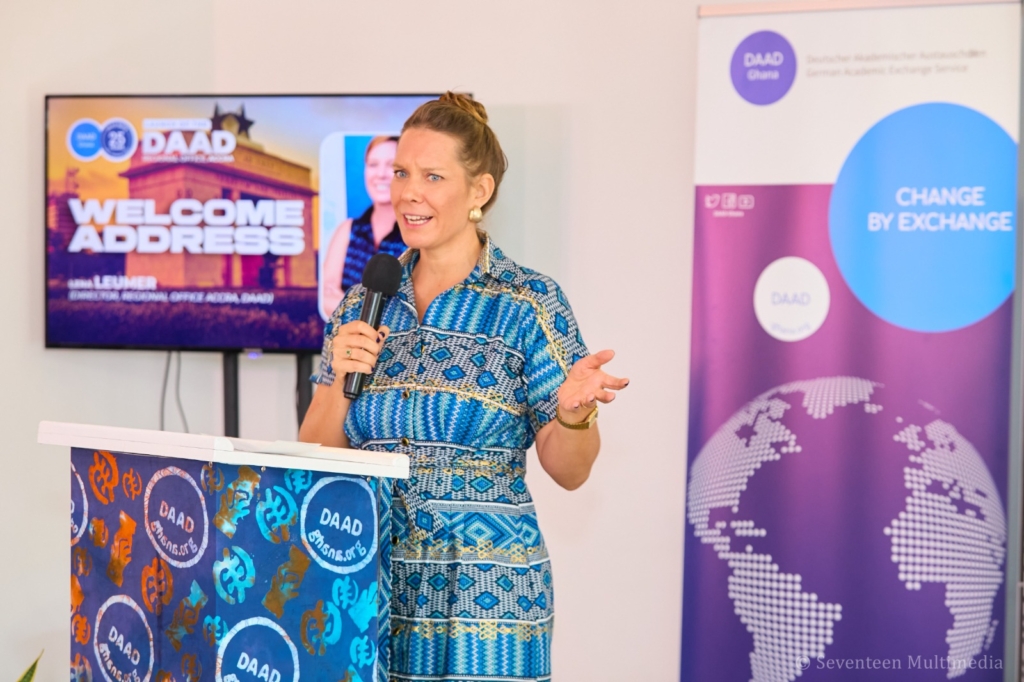
“I returned to Germany in 2022 with a distant hope to come back at some point in time,” she said. “When the decision was made to open a new regional office and I was asked to lead that office, I did not hesitate to accept. This undertaking is… an office that can do everything and preferably all at the same time.”
Leumer highlighted the progress made in just 10 months, including staff recruitment, moving into a new space, and expanding outreach to students and researchers across three countries.
“We’ve built something remarkable,” she noted, while thanking her team for their dedication and describing the transition as “a true baptism by fire.”
The President of DAAD, Prof Joybrato Mukherjee, who is also the first DAAD President to visit Ghana, said the new office comes at a time when international cooperation is more crucial than ever.
“Ghana remains a beacon of stability and an increasingly important partner for Germany politically, economically and academically,” Prof Mukherjee said.
“Much more than about numbers, the DAAD’s legacy has always been about relationships, academic excellence, and sub-diplomacy research.”
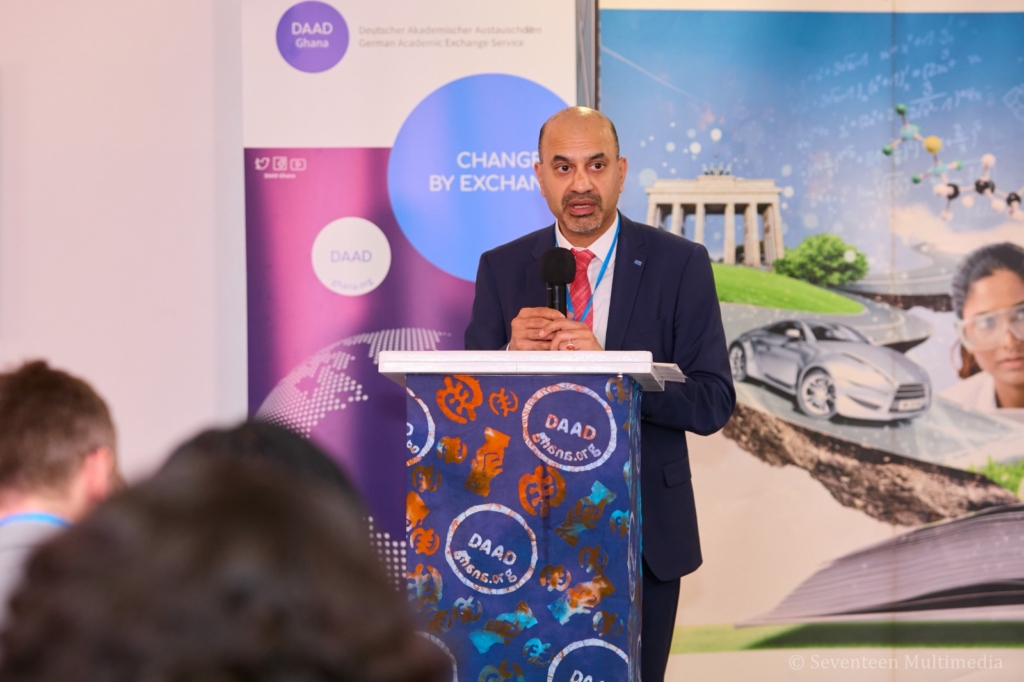
He revealed that DAAD, now in its 100th year, has supported over three million scholars worldwide, with about 13,500 students from Ghana, Nigeria and Cameroon currently enrolled in German universities.
“Our global network now includes nearly 60 offices worldwide and hundreds of partnerships. Yet, until now, German universities lacked a central contact point in this region,” he said.
“This new office will fill that gap and serve as a hub for academic advisory services, partnerships, and cross-regional collaboration.”
The German Ambassador to Ghana, Manuel Müller, called the new office “a milestone in a long-standing and successful partnership” and a “strong signal of Germany’s intent to deepen academic ties with West Africa.”
“The DAAD has doubled its scholarships for Ghanaian students over the years, and institutional collaborations with German universities have tripled,” he said.
“This new hub will support not only DAAD programmes, but also broader European initiatives like Erasmus+, offering students across West Africa valuable opportunities in Germany and Europe.”
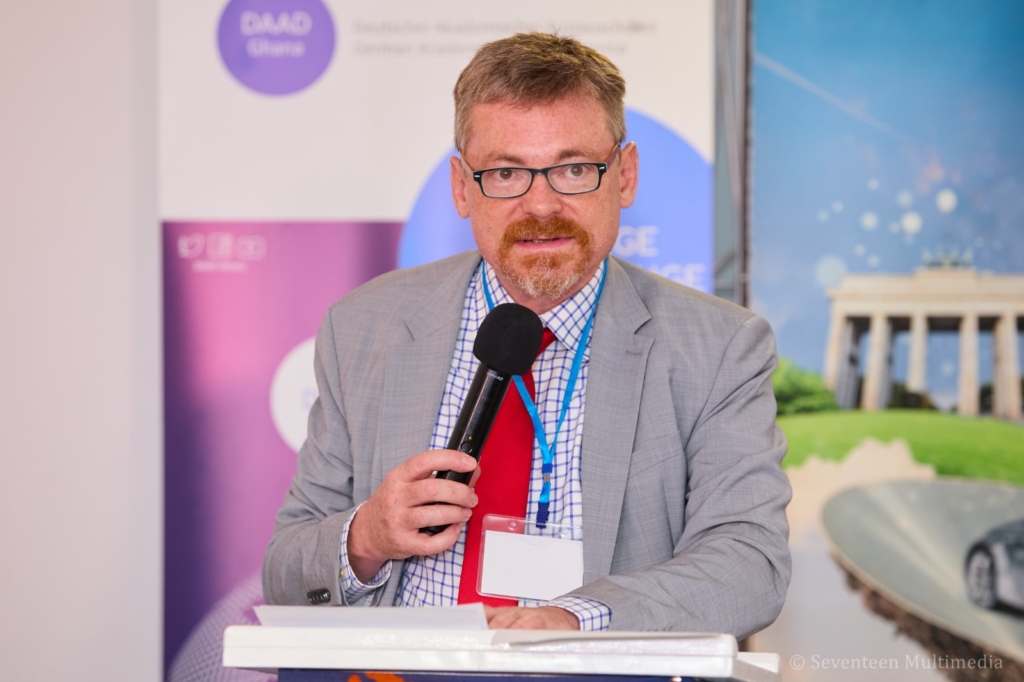
Ambassador Müller also highlighted the DAAD’s role in supporting language education and cultural programmes such as the Falling Walls Lab and the Museums Lab.
He celebrated recent milestones like the accreditation of the German Language Education bachelor’s programme at the University of Education, Winneba, the first of its kind in Ghana.
As DAAD looks toward the future, its leaders reaffirmed their commitment to building resilient global knowledge networks and advancing science diplomacy.
“Africa’s young and growing population presents immense potential for future collaboration,” Prof Mukherjee said.
“Academic cooperation remains an enduring bond that transcends conflict and fosters mutual understanding.”
The event unfolded with a continued sense of excitement and purpose as more dignitaries and academic partners shared their reflections.
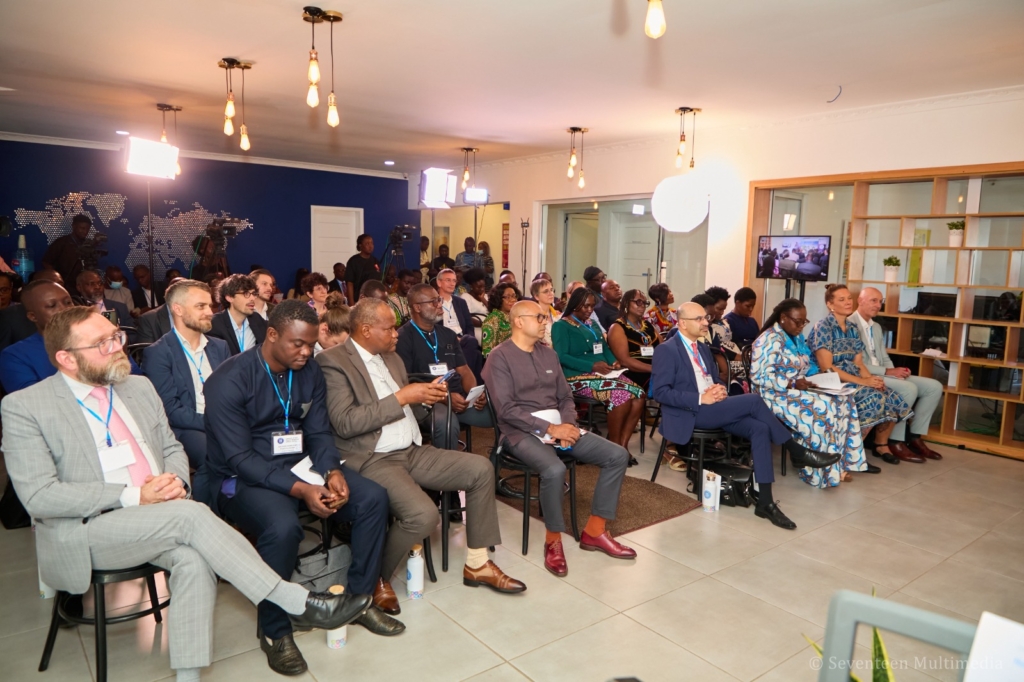
The Ambassador of the European Union to Ghana, Irchad Razaaly, also highlighted the importance of the launch not only for Germany but also for the broader European Union.
“I am very glad to be here today for this official launch of the Regional Office of the DAAD for Greece-Africa, “which is of specific significance for the European Union because the coverage of the German Academic Exchange Service has a long-standing and remarkable reputation as one of the world’s leading organizations promoting international academic exchange.”
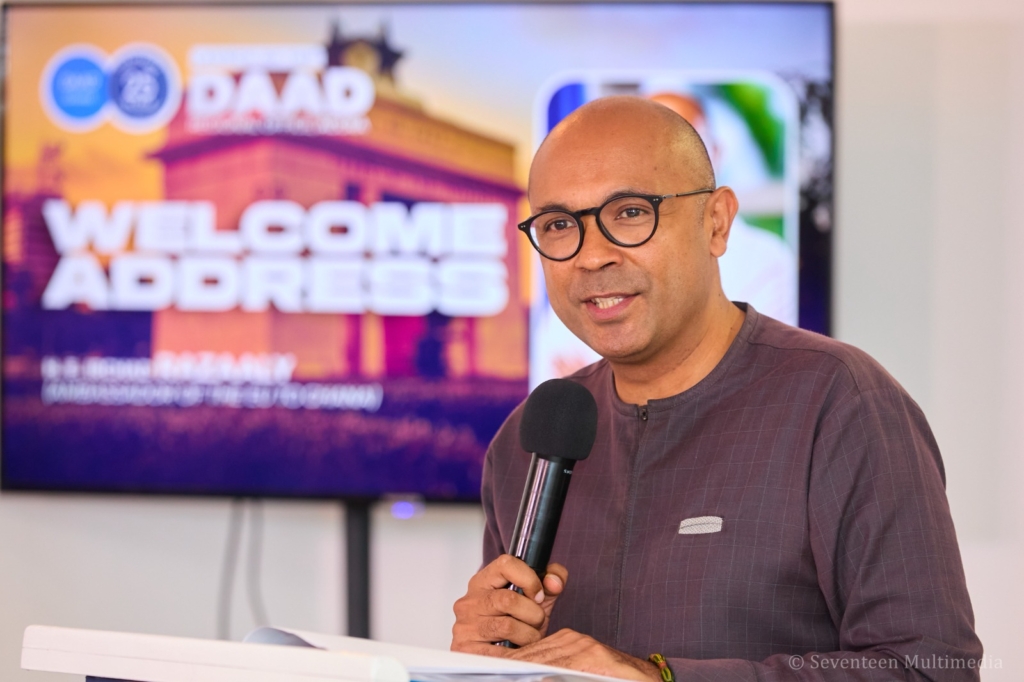
He emphasised that over the decades, DAAD has created countless opportunities for students, researchers, and academics to study, teach, and innovate across borders.
Ambassador Razaaly underlined the strategic importance of Ghana in this vision, stating, “Ghana is a vital hub of academic and intellectual talent in West Africa and across the continent… This is why, for example, Ghana is one of the excellent partners and beneficiaries of the DAAD, providing a city for outstanding students to access scholarships and study in Europe.”
He stated that together, Germany, the EU, and the United States support 1,000 scholarships for Ghanaian students annually, alongside numerous capacity-building projects in higher education and TVET institutions.
He elaborated further on the EU’s investment in Africa’s educational future, referencing the €1 billion Global Gateway initiative which promotes youth mobility across Africa, Europe, and globally. Through such initiatives, he said, “Africa is promoted as a steady destination for excellence.”
The Vice Chancellor of the University of Ghana, Prof. Nana Aba Appiah Amfo, then delivered the keynote speech, which focused on “Multilateral Cooperation between West Africa and Germany – Present and Future.”
She reflected on the symbolic and strategic nature of the event.
“Marking the official launch of the German Academic Exchange Service Regional Office in Ghana for West Africa… consolidates the relationship between Germany and West Africa as a whole, and Ghana in particular.”
Prof. Amfo commended the location choice, emphasising that Accra’s strategic advantages stability, diplomatic presence, academic ecosystem, and connectivity make it an ideal launch pad for regional initiatives.
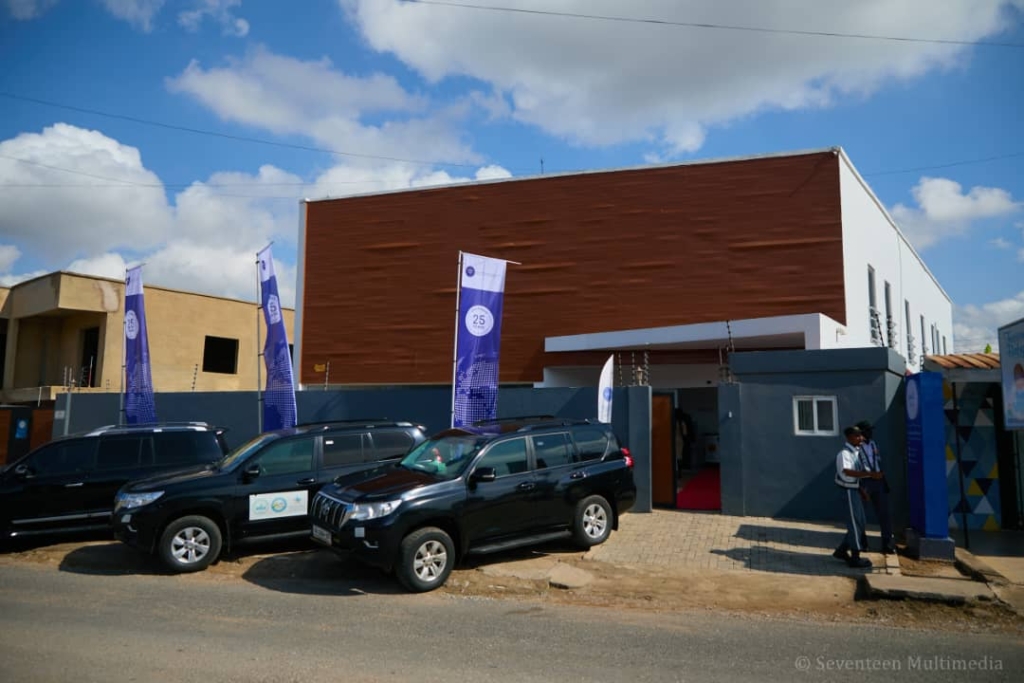
She envisioned the office becoming a hub for fostering inclusive academic cooperation across Ghana, Nigeria, Cameroon, and beyond, contributing to sustainable development through higher education and innovation.
She then explored the evolution of bilateral relations between Germany and West Africa, from post-colonial development assistance to a multifaceted partnership rooted in peacebuilding, economic collaboration, and now, science and education.
She highlighted existing programs such as WASCA, the German-African Innovation Award, and collaborations in renewable energy, climate resilience, and technical education.
The Vice Chancellor appealed to continue building on this momentum. “The establishment of the DAAD Regional Office in Accra marks more than just a geographic expansion… it is a bold investment in the future of knowledge, innovation, and inclusive development across West Africa.”
DISCLAIMER: The Views, Comments, Opinions, Contributions and Statements made by Readers and Contributors on this platform do not necessarily represent the views or policy of Multimedia Group Limited.



